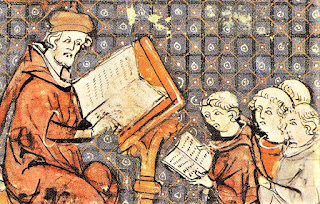One of the controversies was Maimonides' statement that since God created the laws of Nature, He would not violate them. Therefore, once a body starts to putrefy, bodily resurrection was not to be expected. Instead, there would be a spiritual resurrection, but the body remained corrupted. This did not sit well with some.
But Maimonides' blend of Aristotelianism with Jewish tradition, "reason versus revelation" so to speak, was becoming more widespread at the same time that Christian Europe was asserting itself on the Arabic/Muslim world via the Crusades and the effects of the Reconquista were being felt in the Iberian Peninsula. This was also right at the height of the Albigensian Crusade, with its desire to stamp out any deviation from "accepted religious policy" by any means possible. You had many groups all feeling threatened by "The Other," and wanting to take great lengths to prevent other doctrines from gaining ground.
This is also the time, in 1232, when Yonah Gerondi and others convinced secular (Christian) authorities to round up and burn Maimonides' work in Montpellier, causing the men to be condemned by followers of Maimonides and inspiring secular authorities to later burn several wagonloads of Talmud (and no doubt related Jewish documents).
By 1300, however, men like Thomas Aquinas and Duns Scotus read and quoted The Guide For the Perplexed. Aquinas was interested in using reason to prove the existence of God, and quoted Maimonides' Guide several times (although Aquinas misunderstood a lot of Maimonides, according to what I see here.)
Being quoted by an eminent theologian of the 14th century helped bring Maimonides into the mainstream without the threat if having his books burned. The influential "Rabbi of Spain," Shlomo ibn Aderet, who was dabbling in the Kabbalah, was more accepting of thoughts outside the mainstream and saw no reason why Maimonides' works ran counter to the collective body of Halakha, Jewish religious law. The modern view coincides with Aderet's, and Maimonides is considered a valuable voice in Jewish thought.
About Halakha: what does it contain? What besides the Torah and Talmud gets counted as important? Since I'm currently interested in this topic myself, I'm going to look into it and get back to you.
















